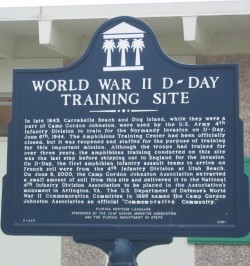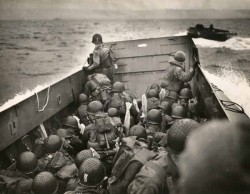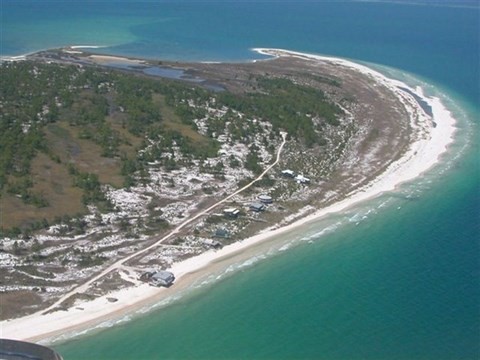“Training” with Morgan Welch (WWII-230)
By Patrick Daglaris, Intern
 Listen: Oral history interview clip at UFDC with Morgan Welch 02:51
Listen: Oral history interview clip at UFDC with Morgan Welch 02:51
Morgan Welch grew up on the foothills of the Ozark Mountains in a small town. His life before the war was modest and was spent traveling trying to make a living. In 1940, he and his brother both enlisted in the National Guard because of their already low draft numbers. Welch talks about the lack of a cohesive fighting group in the early stages of the war and the need to train men to become soldiers. He also describes the sentiment within the military towards Pearl Harbor and changing attitudes as the war progressed.
 Welch’s time in the military provides a remarkable insight into the military training within the United States during World War II because of his time at over six different camps or forts with the Fourth Infantry Division. From Florida to Alaska, he traveled the countryside training and defending strategic locations while preparing to enter the war on the western front, specifically on the shores of Normandy. He reflects on the activities in training camp ranging from leisurely things like renting out his car as a taxi to other soldiers to defending posts and ascending the military ranks.
Welch’s time in the military provides a remarkable insight into the military training within the United States during World War II because of his time at over six different camps or forts with the Fourth Infantry Division. From Florida to Alaska, he traveled the countryside training and defending strategic locations while preparing to enter the war on the western front, specifically on the shores of Normandy. He reflects on the activities in training camp ranging from leisurely things like renting out his car as a taxi to other soldiers to defending posts and ascending the military ranks.
He also portrays the ineptitude and mundanity felt by many soldiers in these training camps as well as their eagerness to get an assignment in battle.In Alaska, he was stationed in Yakutat following Pearl Harbor, where his group was responsible for defending military air strips from a potential Japanese attack. In Florida, he was trained at Dog Island for amphibious landing, for what would unknowingly be the Normandy invasion. His military training within the U.S. provides a perspective into what the training was like as well as the motivation behind these men enlisting and the impact of the war on the American home front.
 Morgan Welch’s training could not have prepared him for his experience in Normandy on D-Day. He led his own squadron onto Utah Beach and provides a hauntingly vivid account of his experience. Welch recalled looking down the barrel of a German Tiger tank and being just low enough to evade the gunfire.
Morgan Welch’s training could not have prepared him for his experience in Normandy on D-Day. He led his own squadron onto Utah Beach and provides a hauntingly vivid account of his experience. Welch recalled looking down the barrel of a German Tiger tank and being just low enough to evade the gunfire.
Before I could say fire, I was looking right down the barrel [laughter] of that .88 millimeter, and all of a sudden the world turned blood red, and immediately the blackest of black…I thought, well that Kraut’s killed me before I could kill him. It didn’t seem to bother me much. Then I thought, all of a sudden I couldn’t feel anything, I couldn’t hear anything, I couldn’t see anything, but I could see nothing but blackness. And I thought, if this is being dead, it’s gonna be one eternal bore. [Laughter] Just staring into blackness, and all of a sudden—it couldn’t have been more than twenty or thirty seconds—all sorts of things went through my mind.
And all of a sudden I heard, plunk! Plunk! Plunk! Plunk! Plunk! Our helmets hitting the ground. That German, he couldn’t lower his barrel enough to blow us to kingdom come with an explosive shell or an armor piercing shell, but I think he’s fired an armor piercing shell.
-Morgan Welch, WWII-230
Morgan Welch’s involvement in fighting extends from training for Normandy in both Florida and England all the way to liberating Paris, which he described as brightest day of his life. He tells his narrative through the perspective of a proud soldier. Throughout his time in training there is a clear transition from a relatively apathetic kid to a passionate and determined soldier dedicated to defending his country. His story embodies the motivation and determination that caused so many men to join the war effort and depicts their experiences both in the training camps and on the fronts.
But that landing in Normandy was looking back on the whole war was one of the easiest things we did. But you were scared to death because you didn’t know what you were getting into. Some of these boys had never seen a dead person and there they were all of a sudden stepping over them and seeing them fall. It’s amazing how you can adjust.
-Morgan Welch, WWII-230
For additional information about these and other histories, contact SPOHP, call the offices at (352) 392-7168, and connect with us online today.
